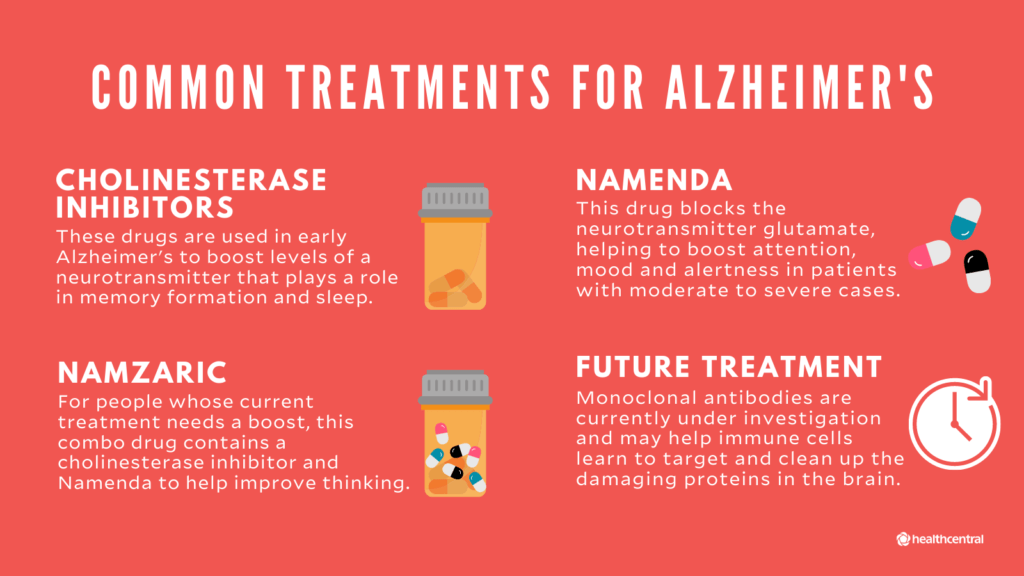NEURODEGENERATIVE DISORDER: ALZHEIMER’S DISEASE
Alzheimer’s disease is a mental decline that interferes with a person’s daily life, which is not a normal part of aging. Alzheimer’s is the most common cause of dementia. In 2020, approximately 5.8 million Americans are living with Alzheimer’s disease. Though it is rare younger people may also get affected by Alzheimer’s disease.
Alzheimer’s is a progressive neurologic disorder that results in the brain shrinking (atrophy) and brain cells dying. Alzheimer’s disease causes a continuous decline in thinking, behavioral and social skills that affect a person’s ability to function independently.
People with Alzheimer’s experience forgetting recent events or conversations in their initial stage. But, as the disease progresses they would develop severe memory impairment and lose the ability to carry out everyday tasks.

WHAT LEADS TO ALZHEIMER’S DISEASE?
Researchers are trying to understand the exact causes of Alzheimer’s disease. The brain proteins fail to function normally at the basic level, which disrupts the work of brain cells or neurons and triggers a series of toxic events. Eventually, the neurons are damaged and lose connections to each other resulting in them to die.
For most people, Alzheimer’s disease is caused by a combination of genetic, lifestyle, and environmental factors that affect the brain over time. Rarely, Alzheimer’s is caused by specific genetic changes that usually occur in middle age.
The damage often initiates in the region of the brain that controls memory, but the process begins years before the first symptoms. The loss of neurons spreads in an approximately predictable manner to other regions of the brain. As the disease progresses by the late stage of the disease, the brain has shrunk significantly.
The cause of Alzheimer’s disease has been found to be focused on the role of two proteins:
- Plaques: The beta-amyloid (larger proteins) fragments cluster together that appears to have a toxic effect on neurons. This would also disrupt cell-to-cell communication as these clusters form larger deposits called amyloid plaques, which also include other cellular debris.
- Tangles: Tau proteins play a vital role in a neuron’s internal support and transport system to carry nutrients as well as other essential materials. The tau proteins in Alzheimer’s change shape and organize themselves into structures called neurofibrillary tangles. These tangles will disrupt the transport system and are toxic to cells.

WHAT ARE THE RISK FACTORS FOR ALZHEIMER’S DISEASE?
Alzheimer’s is an irreversible, chronic neurodegenerative disease that destroys brain cells and disrupts your thinking ability as well as memory. The risk factors include:
- Age: Advancing age is the greatest possible risk of Alzheimer’s disease with the majority of people either 65 or older. Initially, the symptoms can be confused with aging as it impairs the body’s self-repair mechanisms. But, a complete examination of the brain cells would be required for a clear diagnosis.
- Genetics and family history: In rare cases, Alzheimer’s disease might be caused due to alterations in specific genes passed on to the child by a parent. Scientists have discovered three risk genes that cause familial Alzheimer’s: PS1, PS2, and APP genes.
- Gender: Women are believed to be at a greater risk of developing Alzheimer’s disease as compared to men.
- Smoking: People who smoke are at a 45% higher risk of developing Alzheimer’s as compared to non-smokers. Smoking cigarettes increase the risk of several other diseases such as cancer, diabetes, and vascular dementia.
- Obesity: Lack of physical exercise and obesity, especially in mid-life, are common risk factors for Alzheimer’s disease. An active lifestyle and a well-balanced diet will help in maintaining your physical health along with mental health.
- Heart Problems: Our heart helps in nourishing the brain through the blood. Any condition that damages the heart and blood vessels can increase the risk of causing Alzheimer’s disease. It is important to monitor your heart health regularly and reduce the risk of Alzheimer’s through exercise.
- Head Trauma: If you have suffered a traumatic brain injury (TBI) you are at a high risk of developing Alzheimer’s disease.

WHAT ARE THE SYMPTOMS OF ALZHEIMER’S DISEASE?
Loss of memory is the key symptom of Alzheimer’s disease. Difficulty remembering recent events or conversations are common early signs. Changes in the brain due to cell damage lead to growing trouble with:
Memory: You may have occasional memory lapses, but in the case of Alzheimer’s disease the memory loss becomes persistent and worsens. This would eventually affect the ability to function at work or home. If you have Alzheimer’s you may:
- Repeat the statements and questions.
- Forget conversations, appointments, or events.
- Routinely misplace possessions.
- Get lost in familiar places.
- Trouble thinking and reasoning
In later stages, you may forget the names of family members and everyday objects. You may also have trouble finding the right words to identify objects, express thoughts, or take part in conversations.
People with Alzheimer’s face difficulty multitasking and it may be challenging to manage finances, balance checkbooks, and pay bills on time. In a later stage, a person with Alzheimer’s may be unable to recognize and deal with numbers.
Making judgments and decisions: People with Alzheimer’s experience a decline in the ability to make reasonable decisions and judgments in everyday situations. They may also find it more difficult to respond effectively to everyday problems, including food burning on the stove or unexpected driving situations.
Planning and performing familiar tasks: The routine activities that require sequential steps like planning and cooking a meal or playing a favorite game, become a struggle as the disease progresses. As the disease progress, people may often forget how to perform basic tasks such as dressing and bathing.
Changes in personality and behavior: Brain changes can affect moods and behaviors and include problems such as:
- Depression
- Apathy
- Social withdrawal
- Mood swings
- Distrust in others
- Irritability and aggressiveness
- Changes in sleeping habits
- Wandering
- Loss of inhibitions
- Delusions include believing something has been stolen
- Preserved skills

WHAT ARE THE COMPLICATIONS OF ALZHEIMER’S DISEASE?
People with Alzheimer’s experience memory and language loss, impaired judgment, and other cognitive changes that can complicate treatment for other health conditions. A person with Alzheimer’s disease may not be able to:
- Communicate that you are experiencing pain.
- Explain symptoms of another illness.
- Follow a prescribed treatment plan.
- Explain side effects of medication.
The brain changes begin to affect physical functions, such as swallowing, balance, and bowel and bladder control as Alzheimer’s disease progresses to its last stages. The effects can increase vulnerability to additional health problems including:
- Inhaling food or liquid into the lungs (aspiration)
- Flu, pneumonia, and other infections
- Falls
- Fractures
- Bedsores
- Malnutrition or dehydration
- Constipation or diarrhea
- Dental problems such as mouth sores or tooth decay
OUTLOOK
Alzheimer’s disease is not a preventable condition but various lifestyle risk factors for Alzheimer’s can be modified. Changes in diet, exercise, and habits help reduce the risk of developing Alzheimer’s disease and other disorders that cause dementia.
People Also Read:
If you or anyone you know is suffering from neurological problems, our expert providers at Specialty Care Clinics will take care of your health and help you recover.
Call us on (469) 545-9983 to book an appointment with our specialists.
